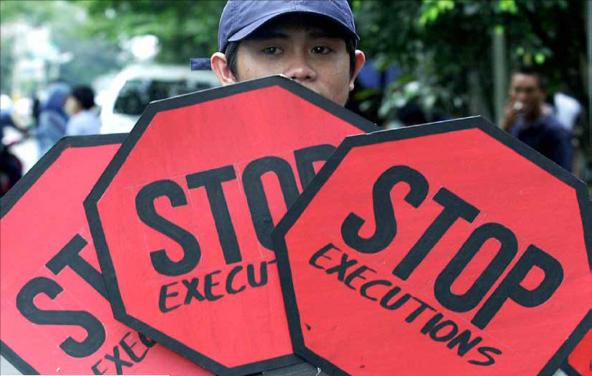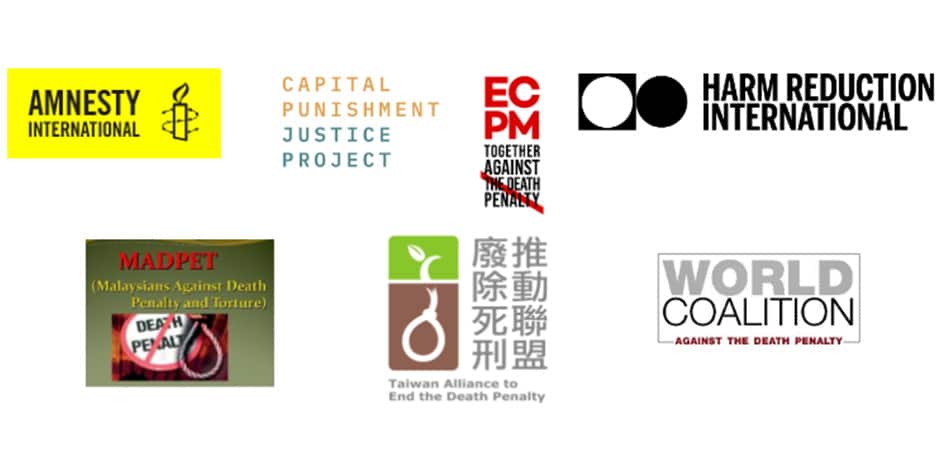
ASEAN countries step back on the path towards abolition
World Day
The last FIDH’s report on Southeast Asia and the Death Penalty, issued this month, observes that the region has witnessed significant setbacks with regard to the abolition of the death penalty. According to the document, since October 2015, Malaysia, Indonesia and Singapore have all carried out executions, while Vietnam keeps to classify statistics on the death penalty as state secrets.
All retentionist Southeast Asian countries apply the death penalty to terrorism-related crimes, the topic the 14th World Day Against the Death Penalty is raising awareness about. “The application of such laws is subject to abuse and arbitrary application because governments define this crime in very broad and vague terms. In addition, many alleged violent acts of terrorism do not meet the threshold of the most serious crimes”, states the report. Florence Bellivier, FIDH Deputy-Secretary General, believes that the pretext of using the death penalty to fight wars on drugs and terrorism is “merely a quick fix for governments who are eager to show they are tough on crime. The reality is that the death penalty has no deterrent effect on the commission of crimes, particularly those that are drug-related or alleged acts of terrorism”.
In an article published by the Bangkok Post on the occasion of the 14th World Day, Seree Nonthasoot, Thailand’s representative to the ASEAN Intergovernmental Commission on Human Rights (AICHR), stated that “the region’s people-centred and people-oriented vision must be underpinned by its drive towards abolishing the penalty”.
Thousands of people in the region are still being summarily and extra-judicially executed for allegedly being involved in drug crimes, but to tackle crime, it is necessary to find ways to reduce it and capital punishment is not working as a deterrent, he said. “It is time for all of us to stand up for a justice system that punishes offenders in a fair and appropriate manner”.
Thailand has not executed anyone for seven years, but there are still prisoners on death row.
About half of them are convicted of drug-related crimes. According to Seree Nonthasoot, Thailand’s National Human Rights Plan of Action (2014-2018) which outlines a plan to abolish the death penalty is a promising step. “But much needs to be done”, he argued and welcomed the recent formation of the Coalition on the Abolition of the Death Penalty in Asean (CADPA) among like-minded persons and groups to campaign for the end of the death penalty.
The Malaysians Against Death Penalty and Torture (MADPET) hopes “that there will be no more death penalty in Malaysia by the next World Day” and called in a statement on authorities to impose a moratorium on all executions. In spite that the country is on the verge of abolishing the death penalty, no progress towards meaningful reform, or the establishment of a moratorium, has been made and in 2016 four persons were executed. As of May 16, 2016, there were 1.041 inmates on death row.
Brunei Darussalam, Burma and Laos have attained, or are close to attaining, the status of de facto abolitionists. In Brunei Darussalam, there have been no executions since 1957, but courts have continued to impose death sentences. At present, approximately five people are believed to be on death row, according to FIDH. The same situation appears in Laos, where no one has been executed since 1989. Burma’s Parliament has made minor progress in repealing legislation that prescribes the death penalty and in the last 12 months, there was one reported instance of a court imposing a death sentence. It has not executed anyone since 1988, but refuses to establish a moratorium.
Indonesia marked a significant step backwards on its path towards abolition, said FIDH.
The country continues to carry out executions and over the past year more crimes were added to the list of those punishable by death. As of 4 October 2016, there were 179 inmates on death row, says the report.
Only Cambodia and the Philippines have abolished capital punishment, even if this latter, which abolished the death penalty for all crimes in 2006, is considering reinstating it as part of its war on drugs.







